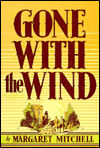Alistair MacLean
 MacLean was the son of a minister, and learned English as his second language after his mother tongue, Scottish Gaelic. He was born in Glasgow but spent much of his childhood and youth in Daviot, near Inverness.
MacLean was the son of a minister, and learned English as his second language after his mother tongue, Scottish Gaelic. He was born in Glasgow but spent much of his childhood and youth in Daviot, near Inverness.He joined the Royal Navy in 1941, serving in World War II with the ranks of Ordinary Seaman, Able Seaman, and Leading Torpedo Operator. He was first assigned to PS Bournemouth Queen, a converted excursion ship fitting for anti-aircraft guns, on duty off the coasts of England and Scotland. From 1943, he served on HMS Royalist, a Dido-class light cruiser. On Royalist he saw action in 1943 in the Atlantic theatre, on two Arctic convoys and escorting carrier groups in operations against Tirpitz and other targets off the Norwegian coast; in 1944 in the Mediterranean theatre, as part of the invasion of southern France and in helping to sink blockade runners off Crete and bombard Milos in the Aegean Sea (during this time MacLean may have been injured in a gunnery practice accident); and in 1945, in the Far East theatre, escorting carrier groups in operations against Japanese targets in Burma, Malaya, and Sumatra. (MacLean's late-in-life claims that he was captured by the Japanese and tortured have been dismissed by both his son and his biographer as drunken ravings. [Webster p. 191]) After the Japanese surrender, Royalist helped evacuate liberated POWs from Changi Prison in Singapore.
MacLean was released from the Royal Navy in 1946. He then studied English at the University of Glasgow, graduating in 1953, and then worked as a school teacher.
While a university student, MacLean began writing short stories for extra income, winning a competition in 1954 with the maritime story "Dileas". The publishing company Collins asked him for a novel and he responded with HMS Ulysses, based on his own war experiences, as well as credited insight from his brother Ian, a Master Mariner. The novel was a great success and MacLean was soon able to devote himself entirely to writing war stories, spy stories and other adventures.
In the early 1960s, MacLean published two novels under the pseudonym "Ian Stuart" in order to prove that the popularity of his books was due to their content rather than his name on the cover. They sold well, but MacLean made no attempt to change his writing style and his fans may easily have recognized him behind the Scottish pseudonym. MacLean's books eventually sold so well that he moved to Switzerland as a tax exile. From 1963–1966, he took a hiatus from writing to run a hotel business in England.
MacLean's later books were not as well received as the earlier ones and, in an attempt to keep his stories in keeping with the time, he sometimes lapsed into overly improbable plots. He also struggled constantly with alcoholism, which eventually brought about his death in Munich in 1987. He is buried a few yards from Richard Burton in Céligny, Switzerland. He was married twice and had three sons with his first wife.
MacLean was awarded a Doctorate of Literature by the University of Glasgow in 1983.
Download Books :
http://rapidshare.com/files/45497723/Alistair_Maclean.7z
File Size : 8.3 MB

.jpg)

















































































































































































































































































































































































































































































































